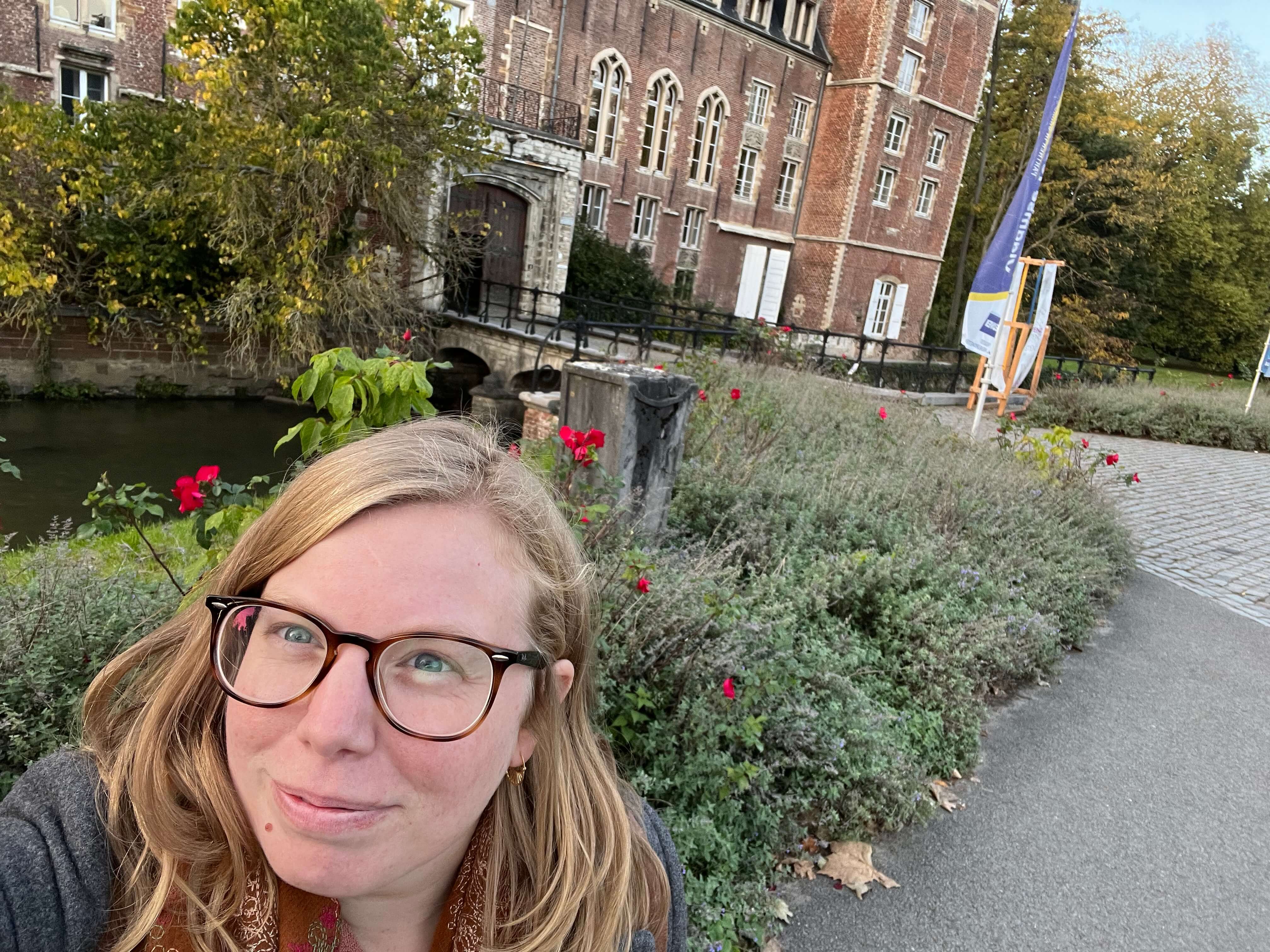PRIVACY-postdoc Sanne Maekelberg in new job at KU Leuven
Postdoctoral researcher at Centre for Privacy Studies, Sanne Maekelberg recently started a new job at KU Leuven. For the past three years, Sanne has worked at PRIVACY and enriched us with her expertise in architectural history and pleasant personality. At KU Leuven, Sanne is now a postdoctoral researcher at the research section of History, Theory, and Criticism of the Department of Architecture. We wish her the best of luck in her new position.

We have interviewed Sanne about her new job and her affiliation with PRIVACY.
Could you give a short introduction to the research section of History, Theory, and Criticism and your own research there?
The research section actively engages in constructing architectural narratives that explore innovative connections between architecture, culture, and society in past and present. This critical perspective aligns with traditions of critical theory and historical criticism, encouraging a deeper understanding of how architecture shapes and is shaped by cultural and social phenomena. We use an interdisciplinary approach at the crossroads of engineering, architectural sciences, humanities, and social sciences. Within this framework, I am part of different research projects, all using digital methodologies to investigate historical questions. One project, titled Noble Landscapes, looks at spatial strategies of self-representation through an investigation of the nobility and the invention of the well-ordered landscape from 1482 to 1713. Here, we examine the lifestyle and cultural identity of the nobility concerning garden and landscape architecture as an integral part of the `vivre noblement’. Additionally, I am starting a close collaboration with Prof. Merlijn Hurx to open up lost Burgundian residences in the County of Flanders digitally. One of the aims of this project is to develop a new method to integrate source material and 3D reconstruction to obtain a critical and verifiable model of these lost sites.
Do privacy and the private play a role in your current research at KU Leuven? And if so, in what way?
My time at the Centre for Privacy Studies has made me more aware of subtle instances of privacy in the source material I work with. Another project I am currently part of is the ERC proof of concept VALSOUNDS, led by Prof. Karl Kügle, which aims to reconstruct the acoustics of courtly spaces of the Valois dynasty in fourteenth-century France. From an architectural point of view, we know that the spatial sequence of the courtly apartment got longer and that new, more restricted spaces were introduced. In this project, we examine if this change in palace architecture might be connected to changes in musical style and performance within these spaces. Particularly, the introduction of the private oratory in the Valois royal residence is a focal point of this research. This month, we are going to Germolles, one of the best preserved Burgundian residences of the fourteenth century - including the wall paintings - to perform acoustic measurements of these spaces. Given the objective of the ERC Proof of Concept scheme, which aims to connect academia with industry, the interdisciplinary team of scholars and performers works together with a commercial enterprise to design a prototype of a multimedia digital valorization tool that will allow museums and cultural heritage institutions to highlight the sonic aspects of their collections or sites.
How can you use your experience from Centre for Privacy Studies in your new job?
During my three years at the Centre for Privacy Studies, I learned to collaborate within an interdisciplinary team and communicate with people with different expertise than me. This experience proves to be particularly useful within the context of the VALSOUNDS project, where we work with acousticians, historical musicologists, and experts in historical performance based at Oxford, KU Leuven, and the Schola Cantorum Basiliensis in Basel. The issue of privacy also returns in many of the projects that I am, and will be, working on, not only in the examination of the private oratory, but also in the investigation of the use and function of the noble landscape and the importance of gardens and landscape in the search of seclusion.
How do you wish to stay connected with Centre for Privacy Studies in the future?
I will remain an affiliated researcher of the Centre for Privacy Studies and will keep in touch with my former colleagues. Furthermore, I think developing collaborative research projects is the best way to stay connected. I am supporting several colleagues in project applications and we are developing a COST application with many different partners, including KU Leuven and the Centre for Privacy Studies. Fingers crossed!
